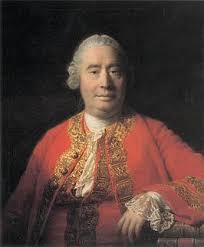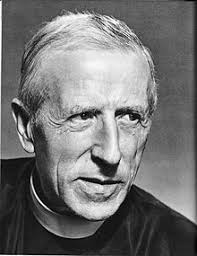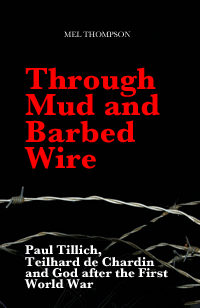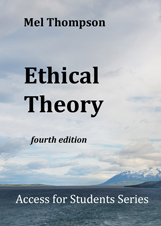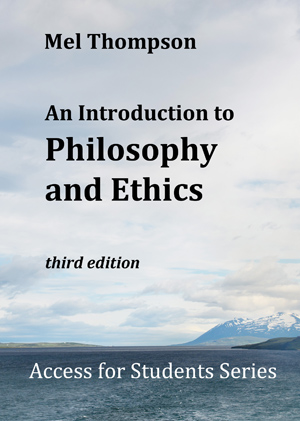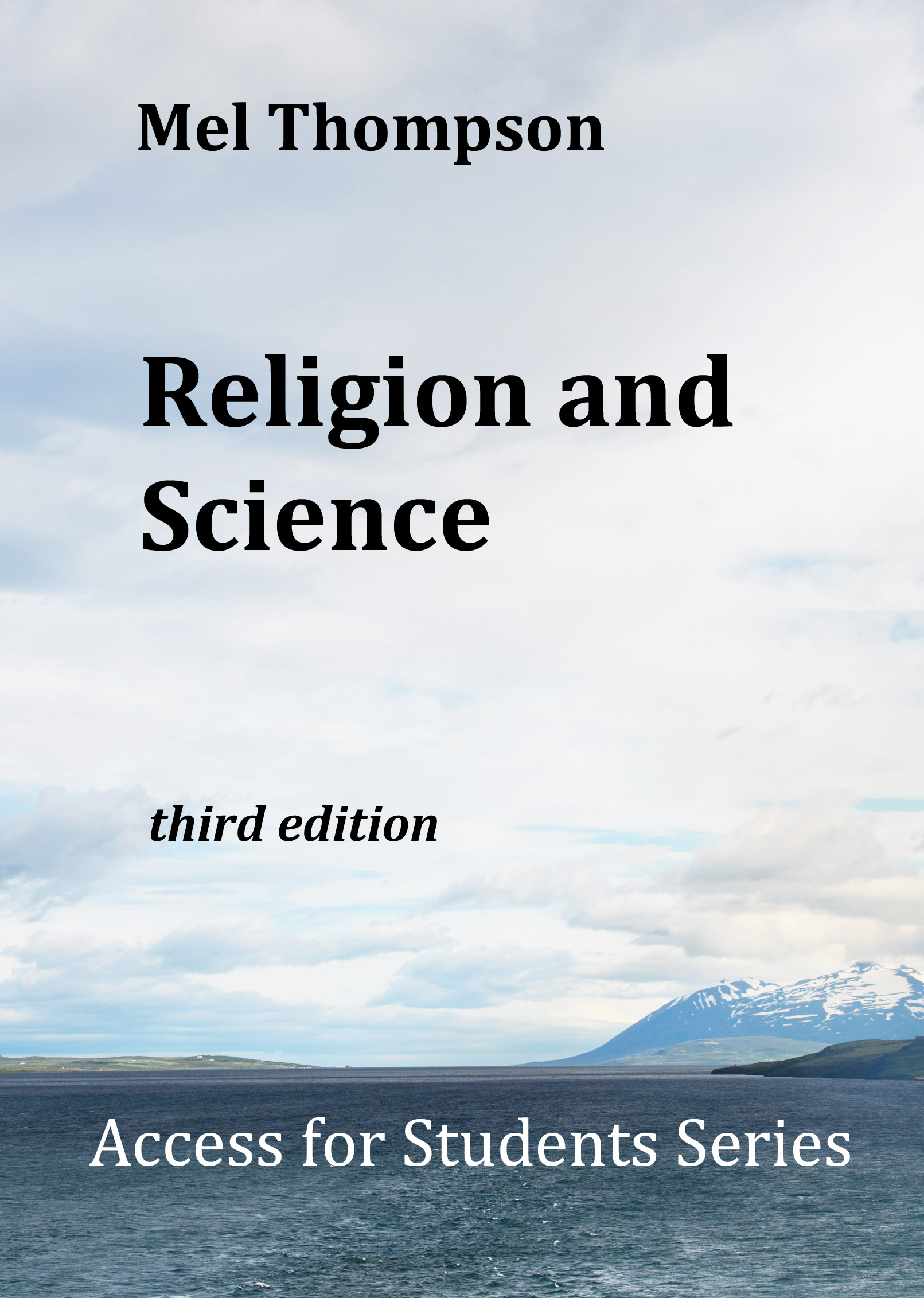 Religion and Science
Religion and Science
This former textbook from Hodder Education has been re-issued - with the paperback at £8.99 / $9.99 and ebook at £1.99 / $2.99!
Originally written for students taking A level examination in Religious Studies, Religion and Science gives an overview of the issuesthat arise in the overlap between these two aspects of life, unpicks the key arguments and sets them in an historical context.
While the wonders of the universe are being explored by science, religion seeks ways in which that sense of wonder can be expressed and responded to.
Issues of debate betwen religion and science can easily become polarised between a narrow scientism and a literalist and supernaturalist view of religion; hopefully, this book will present you with an attempt at careful, rational balance.
This edition is substantially the same as the original version, with only minor text corrections, so teachers can use it alongside existing copies of the Hodder print edition.
(If viewing this page on a phone, please turn it sideways now to see the full list of contents in the right column - or scroll down.)
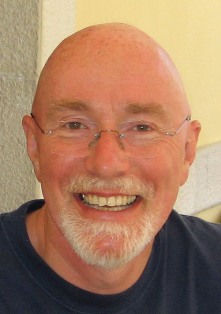 "So much has happened in the religion and science debate over the last ten years or so. Sadly, the most widely publicised is the on-going battle between the fundamentalist extremes, with those who defend a naive and literalist interpretation of Genesis, waged against some scientists (including Dawkins, who really should know better) who refuse to take a measured or scientific view of religion and who tend to move in the direction of scientism - the 19th century view that science offers the only way to describe reality.
"So much has happened in the religion and science debate over the last ten years or so. Sadly, the most widely publicised is the on-going battle between the fundamentalist extremes, with those who defend a naive and literalist interpretation of Genesis, waged against some scientists (including Dawkins, who really should know better) who refuse to take a measured or scientific view of religion and who tend to move in the direction of scientism - the 19th century view that science offers the only way to describe reality.
"Hopefully, this book will restore the rightful position of the middle ground, recognising that religion is an interesting phenomenon for science to examine, but also exploring and celebrating the proper (and inspiring!) place of scientific knowledge in a humane view of the world.
"Science, it seems to me, has an obligation to take phenomena seriously and to attempt a balanced explanation of their causes and their place in the larger scheme of things. Religion, like morality, is a phenomenon to be studied and, if possible, explained. Religion is NOT simply to be identified with belief in God - it is far more complex than that. Why it persists, in the face of huge intellectual difficulties with many of its claims, is a fascinating subject worthy of serious philosophical and scientific scrutiny."
The book tries to balance an historical perspective with current issues, in order to give you a solid, factual background to the arguments. Here, for example, we explore the background to issues of freedom and determinism...
Haeckel and Monod: a naturalistic view
Key thought
‘Scientific materialism’ is the attempt to show that all that we know and experience arises out of the material world and depends upon its laws. It therefore tends to dismiss morality as a matter of personal preference or social conditioning and religion as the product of superstition, since neither makes claims that can be validated scientifically.
The temptations of scientific determinism
In 1899, Ernst Haeckel published The Riddle of the Universe. In it he argued that everything, including thought, was the product of material world and was absolutely controlled and determined by its laws. Freedom was an illusion and religion a superstition. He proposed what is generally termed ‘scientific materialism,’ popularising Darwin's theory of evolution, and sweeping away all earlier philosophy that did not fit his naturalistic and scientific outlook.
On the other hand, he did not deny that there was a ‘soul’ or self, rather he saw it as a natural phenomenon, and as based on a material substratum. He was totally opposed to Descartes’ dualism, with matter on one side and mind on the other. He is sometimes described as a materialist, but this is not strictly true (since it implies the non-existence of the world of thought, the self, and freedom), what he actually claims is that all the ‘spiritual’ aspects of humanity arise out of and are dependent upon their material basis – and this he saw as a ‘naturalistic’ view of the universe.
His was also a ‘monist’ view: that there is one single reality, not two. Haeckel, clearly believed that the doctrines of religion were based on superstition, encouraged by the notion of a dualistic universe in which mind or spirit was separated off from matter. He considered that, with further progress, science would lead to a unified system of thought that would explain absolutely everything.
Key quote
Haeckel claimed of his view that:
‘... it involves, on its positive side, the essential unity of the cosmos and the causal connection of all phenomena that come within its congnizance, but it also, in a negative way, marks the highest intellectual progress, in that it definitely rules out the three central dogmas of metaphysics – God, freedom and immortality. In assigning mechanical causes to phenomena everywhere, the law of substance comes into line with the universal law of causality.’
The Riddle of the Universe, 1899
It is clear, however, celebrating the end of a century of achievement in the sciences, that he felt that physics in particular had established itself beyond question and was now the dominant force in human understanding. It is interesting to reflect on the fact that the sort of physics he regarded as so soundly established was soon to be challenged by radical leaps forward.
Key questions
What would Haeckel have made of relativity and quantum theory? Would they have changed his views on the nature of determinism?
But however much the scientific theories may have changed, the fundamental issue raised by Haeckel remained throughout the 20th century: his form of scientific materialism basically considered science to be the only reliable route to knowledge, and matter to be the fundamental reality.
Key person: Jacques Monod (1910 – 76)
Monod, an eminent French evolutionary biologist, argued that evolution had no end point or goal, and did not see how a scientist could also claim to believe in God.
Jacques Monod explored the implications of molecular biology, and in particular the fact that evolutionary change is brought about by random mutations at the genetic level. He argued that everything that takes place at higher levels of organisation (e.g. for a human being) is ultimately the result of chance. Once the chance mutations have actually take place however, everything else follow from them of necessity. Chance and necessity between them therefore determine all that will happen. This view excludes any possibility of there being a God. In Chance and Necessity (1971) he claimed:
‘pure chance, absolutely free but blind, is at the very root of the stupendous edifice of evolution.’
and concluded by saying:
‘... man at last knows that he is alone in the unfeeling immensity of the universe, out of which he emerged only by chance.’
Monod’s assertion that emergence is ‘only by chance’ may be challenged. As Richard Dawkins and others have clearly pointed out, natural selection has the effect of taming chance, because it builds on successive positive steps. The evolution of any one species would seem to be neither rigidly necessary, nor pure chance, but a combination of the two, with chance mutations capitalising on their advantages, breeding, and thereby influencing the opportunities for future mutations.
Key thought
This view of humankind’s place within the universe, which sounds rather bleak and impersonal, has prompted other thinkers to develop the strong form of the ‘anthropic principle’ (see chapter 6, section 3) in order to take a more positive and integrated view, seeing humankind’s development as inevitable. However, this does not deny Monod’s fundamental way of approaching the issue. Given chance initial parameters for the universe, necessity takes over and makes our present situation inevitable.
Now let us examine the implications of Haeckel or Monod for the specific issue of freedom and determinism. Although as scientists they inhabited very different worlds, fundamentally they take the same position:
-
Everything that happens depends on physical laws. Haeckel thought these could be determined, Monod (in the light of the 20th century advances in biology) sees the determined aspect of such physical laws as based on random, chance mutations.
-
Neither of them will accept a dualist view, where human freedom and thought stands over against a determined physical universe.
Monod was concerned to remove the idea of a creator God; the whole process of evolution was explained by chance and necessity. You do not need God in order to explain how the universe has come to be as it is. But the same argument can be applied to human freedom. To experience freedom and choice is to be creative – in a limited sense, it is to be god-like (and religion therefore makes much of the idea of freedom being given to humankind by God). Whatever I think I have freely chosen to do, will (to follow the line of Monod’s argument) be explicable in terms of chance (the particular circumstances and opportunities that were presented) and necessity (the laws of nature that, with hindsight, we can see as determining the choice that is made).
Between them, according to Monod, chance and necessity have provided an exhaustive account of what is experienced as free choice. But does that actually detract from my freedom?
Playing dice?
Key question
Is uncertainty predictable?
A characteristic feature of quantum physics is Heisenberg’s uncertainly principle. This states that it is possible to know either the position or the momentum of a particle, but not to know both accurately at the same time. In dealing with particles, it also appears that their behaviour is random – they are not ‘caused’ as are events on a larger scale. Hence, Quantum physics deals with probability rather than with individual certainty at the sub-atomic level (see chapter 5, section 2).
However, it is sometimes argued that this ‘uncertainty principle’ has revealed an element of chance or freedom at the heart of reality, and that this somehow allows for freedom rather than determinism at the level of human activity. But this is not justified. In quantum physics, simple events are undetermined – we cannot know what any one particle is going to do. What we do know, however, is what very large numbers of particles are likely to do. The quantum approach is therefore statistical.
Two things follow from this:
1 Nature can still be regular and predictable even if, at the sub-atomic level, individual particles are undetermined.
2 Therefore, at the level at which human freedom operates (or appears to operate), quantum indeterminacy is irrelevant. On the large scale, it is as unlikely that statistical probability will be overturned as that a ‘law of nature’ will be broken.
Key quote
‘Quantum physics has nothing to do with the free-will problem.’
Erwin Schrödinger, Science and Humanism, 1952
Einstein commented on the idea of indeterminacy by saying ‘God does not play dice.’ By this he meant that is it impossible to conceive of a universe in which everything happens in a random fashion. The whole of our ability to think and predict is based on the perception of regularity. Indeed, the whole success of the scientific endeavour is proof of the consistency of the phenomenal world. If things behaved in random fashion, no science of technology would be possible, for it works by predicting and examining the results of predictions.
From the religious perspective it is also important to realise that two extremes are equally difficult to square with religion and morality: the absolute determinism of a mechanical universe, and the absolute freedom of a universe that operates in a totally random fashion. Randomness precludes any sense of meaning, purpose or value.
Key thought
In terms of human behaviour, sociologists have recognised that there are general tendencies that behave rather like physical laws, but which are only known through statistics. In other words, they cannot show exactly how any one individual will behave, but that can predict with some accuracy how a percentage of people in a particular population are likely to behave.
We may be growing taller and/or wider, drinking more alcohol, using the internet more. These claims are based on statistical evidence, and remain true even if individuals go against the trend that the statistics reveal.

